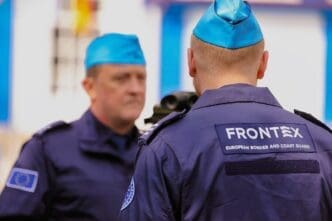The Executive Director of Frontex, Hans Leijtens, has expressed a desire to avoid returning migrants arriving in Europe to Libya, where they frequently endure human rights violations. However, he acknowledges that the agency sometimes finds itself with no alternative. Frontex, the European Union’s border and coast guard agency, often faces criticism from human rights organizations for its perceived inadequacy in saving lives at sea.
Frontex employs drones and aircraft to identify boats, often overcrowded with migrants, heading towards Europe. Once detected, a coordination center is notified, and these migrant vessels are frequently intercepted and redirected to other Mediterranean coastlines. Libya, a principal departure point for perilous sea journeys to Europe, is among these destinations, where documented human rights abuses against migrants, including torture, are prevalent.
Leijtens conveyed a sense of regret regarding the return of migrants to Libya. He explained that the agency’s responsibility ends at informing the maritime rescue coordination center, which then places the responsibility on Libyan authorities when operations occur within Libyan waters. He stressed that the agency cannot rely on non-governmental organizations (NGOs) for rescues, as their availability is not guaranteed, which could result in life-threatening situations for migrants.
Despite the potential dangers awaiting migrants in Libya, Leijtens emphasized that the primary concern is preventing drownings at sea. He reiterated that while the return of migrants to Libya is undesirable, it is sometimes the only viable option to ensure their survival.
NGOs involved in rescue operations often face opposition from EU member states, which argue that their efforts encourage more refugees to undertake dangerous crossings. Leijtens refuted this claim, stating that there is no evidence supporting the notion that NGO activities serve as a “pull factor.” He views NGOs as integral to the rescue ecosystem, working alongside Frontex to save lives at sea. Leijtens maintains regular communication with NGOs to align efforts and avoid obstructing each other’s work.
Frontex also plays a role in the return of individuals whose asylum applications have been denied. Leijtens highlighted the potential for increased cooperation with NGOs in this area. The agency implements a post-return program to assist individuals in reintegrating into society, with NGOs executing these initiatives using Frontex funding. This collaboration paints a more complex picture than is often portrayed.
Having led Frontex for two years, Leijtens is contemplating expanding the agency’s search and rescue operations. European Commission President Ursula von der Leyen has proposed increasing Frontex’s staff by 30,000, which could significantly enhance the agency’s ability to secure Europe’s external borders.














